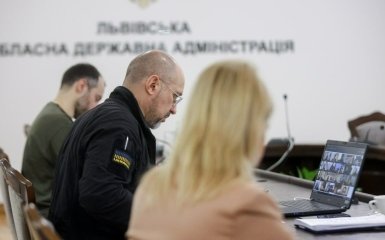The government team is working on the border with Poland on February 23 to support the stability and rhythm of exports and to launch alternative export and import routes.
What decisions were made by the government team on the border with Poland
The Minister of Community Development, Territories and Infrastructure, Oleksandr Kubrakov, noted that a list of solutions starting to be implemented has been prepared.
The first is the launch of container transportation through the Danube to the Romanian ports (Galatz and Constanta) and to the German Regensburg. Ukrainian Danube Shipping has already sent offers to the largest car carriers, preparations are underway for the launch of the first flights in the coming days. River transportation by the UDP fleet can compensate for the transportation of up to 5,000 trucks, Kubrakov noted.
The second is Ukrzaliznytsia. The minister invites cargo owners and shippers to use all 15 working crossings with European countries, allowing them to diversify routes and effectively use the existing border infrastructure.
According to Kubrakov, a new intermodal service has already been introduced, which combines the transportation of container trains, counter-trailer trains and trains of combined transport. Thanks to it, 50 intermodal trains have already been transported in the direction of Romanian and Polish ports and 155 in the direction of Ukrainian ones, the minister added.
With regard to exports through the Ukrainian Corridor, we are also working on organizational and technical issues by expanding the capacity of railway lines to seaports. Here it is worth noting that 93% of Ukrainian agricultural products go precisely through sea corridors, — Kubrakov wrote.
The third is to increase the capacity of automobile checkpoints. According to the minister, this process is not fast, but they consistently work on it. Kubrakov noted that the "Reni" checkpoint reconstruction is being completed to launch joint control there with Moldova in March.
In addition, according to him, on February 23, they agreed to launch empty trucks through the Luzhanka checkpoint, now it is up to the Hungarian colleagues. It will be able to drive open trucks without weight restrictions and passenger and cargo vehicles with a maximum weight of up to 7.5 tons.
With Romania, Ukraine continues to talk about the passage of transport with cargo through Krasnoilsk and the launch of empty ones through Dyakivtsi, the minister explained. Options for increasing the capacity of "Porubne", "Dyakove", and "Orlivka" are also being worked out.
It is planned to start the reconstruction of the passenger terminal at Uzhhorod in order to separate traffic flows and increase the capacity for cargo.
The situation on the border with Ukraine
On February 21, the President of Ukraine, Volodymyr Zelenskyy, addressed European and Polish partners regarding the situation on the Ukrainian-Polish border.
He said that he instructed the Ukrainian government to be at the border with Poland by February 24, inviting the Polish prime minister and the government to a meeting there.
Polish President Andrzej Duda said he supports the idea of a meeting between the Ukrainian and Polish governments.
Polish PM Tusk noted that Poland and Ukraine's governmental meeting will occur on March 28 in Warsaw.
On February 9, Polish farmers started blocking roads in Poland and checkpoints on the Polish-Ukrainian border.












